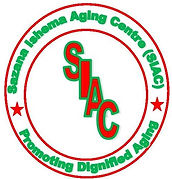

Sazana Ishema Aging Centre (SIAC) is a National Rwandan Interdenominational Faith Based Organization (Ministry) which promotes dignified aging.
SIAC Historical Background
The vision of SIAC started in 2011 when Rev. Immaculée Nyiransengimana, a Pastor from the Anglican Church of Rwanda in the Shyogwe Diocese was a Masters of Social Work student at Uganda Christian University conducting research on aging in Rwanda which revealed that elders experience a variety of different challenges including: poverty, loneliness, poor health, poor hygiene and sanitation to name, but a few.
After discussing the results of the research with the Rt Rev. Dr. Jered Kalimba, the Bishop of EAR, Shyogwe Diocese and Dr. Katharine Hobart her MSW supervisor, Pastor Immaculée Nyiransengimana determined that the elders’ needs were great enough that something needed to be done. Therefore, she began organising elders into local clubs to help them to solve some of their problems. From here it grew into different parishes starting elder clubs. The first elders club was initiated in the Gasharu Parish in Muhanga
District on 27/10/2011 and it was followed by Mutara club in the Ruhango district.
Due to the positive experience of these first elder clubs, SIAC was motivated to extend its work beyond Shyogwe Diocese and to become more professional and broad-based. It is in this way that Sazana Ishema Aging Centre (SIAC) was started as a National Interdenominational Faith Based Organization which has legal authority to work in the whole of Rwanda with different partners. It got its legal personality from Rwanda Governance Board (RGB) on 8/9/2021.
Some SIAC Activities
Conducting research on aging
· Helping in the development and ongoing management of elder clubs.
· Training elders and formal and informal caregivers in aging and care provision.
· Offering basic technology training to elders.
. Promoting literacy among elders
· Making and providing local materials to assist elders with activities of daily living.
· Educating elders and others on providing ongoing care to vulnerable children.
· Motivating elders to use their skills and talents to enhance their communities and families.
· Organizing celebrations of International and other elder days.
· Mobilizing elders for entrepreneurship and self-help.
· Empowering elders to transmit cultural and historical heritage to young ones.
· Educating elders to enhance their lives and prevent health issues.
. Organize regular fellowships ( Group meetings).
.

